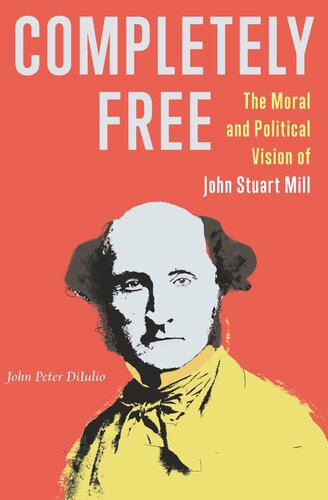

Most ebook files are in PDF format, so you can easily read them using various software such as Foxit Reader or directly on the Google Chrome browser.
Some ebook files are released by publishers in other formats such as .awz, .mobi, .epub, .fb2, etc. You may need to install specific software to read these formats on mobile/PC, such as Calibre.
Please read the tutorial at this link: https://ebookbell.com/faq
We offer FREE conversion to the popular formats you request; however, this may take some time. Therefore, right after payment, please email us, and we will try to provide the service as quickly as possible.
For some exceptional file formats or broken links (if any), please refrain from opening any disputes. Instead, email us first, and we will try to assist within a maximum of 6 hours.
EbookBell Team

4.1
70 reviewsAn original, unified reconstruction of Mill’s moral and political philosophy—one that finally reveals its consistency and full power
Few thinkers have been as influential as John Stuart Mill, whose philosophy has arguably defined Utilitarian ethics and modern liberalism. But fewer still have been subject to as much criticism for perceived ambiguities and inconsistencies. In Completely Free, John Peter DiIulio offers an ambitious and comprehensive new reading that explains how Mill’s ethical, moral, and political ideas are all part of a unified, coherent, and powerful philosophy.
Almost every aspect of Mill’s practical philosophy has been charged with contradictions, illogic, or incoherence. Most notoriously, Mill claims an absolute commitment both to promoting societal happiness and to defending individual liberty—a commitment that many critics believe must ultimately devolve into an either/or. DiIulio resolves these and other problems by reconsidering and reconstructing the key components of Mill’s practical thought: his theories of happiness, morality, liberty, and freedom. Casting new light on old texts, DiIulio argues that Mill’s Utilitarianism and liberalism are not only compatible but philosophically wedded, that his theories naturally emanate from one another, and that the vast majority of interpretive mysteries surrounding Mill can be readily demystified. In a manner at once sympathetic and critical, DiIulio seeks to present Mill in his most lucid and potent form.
From the higher pleasures and moral impartiality to free speech and nondomination, Completely Free provides an unmatched account of the unity and power of Mill’s enduring moral and political thought.